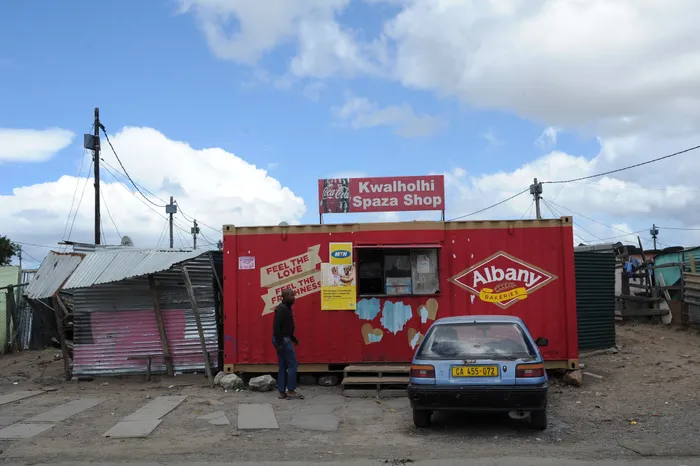Nearly 80% of township businesses operate unregistered, Standard Bank report reveals

Standard Bank's inaugural Township Informal Economy Report reveals that despite contributing nearly a trillion rand to South Africa's economy and creating thousands of jobs, almost 80% of township businesses remain unregistered, locking them out of formal financial services and growth opportunities.
Image: Henk Kruger Independent Newspapers
Nearly 80% of surveyed businesses are unregistered, excluding them from finance and formal opportunities, according to Standard Bank's inaugural Township Informal Economy Report. According to Statistics South Africa (Stats SA), unregistered businesses operate outside formal regulatory frameworks, including VAT registration, labour regulations, and tax compliance. These businesses are often not incorporated as legal entities, which prevents them from accessing finance, formal markets, and digital tools that could support their growth.
Despite these constraints, the township's informal economy remains a vital part of South Africa’s labour market, accounting for nearly 19.5% of total employment in the last quarter of 2024. Recent estimates place its value at nearly a trillion rand, a significant figure when compared to South Africa’s nominal GDP of R7.3 trillion in 2024.
The report, released recently, offers a detailed view of township informal businesses, covering their demographics, financial behaviours, support needs, and growth potential. The survey spanned Gauteng, KwaZulu-Natal, Western Cape, Limpopo and North-West, and included enterprises with annual turnovers ranging from R100 000 to R50 million.
Naledzani Mosomane, head of enterprise and supplier development at Standard Bank South Africa, says: “The emerging township informal economy is not just a rising segment of South Africa’s broader economic landscape; it is its heartbeat. It is where resilience meets innovation, where necessity births enterprise, and where informal businesses quietly power livelihoods, families, and communities. Yet, despite their undeniable contribution, emerging township entrepreneurs often remain on the margins of formal economic support.”
Key findings from the report show that township businesses are concentrated in economically active provinces, particularly Gauteng. Most enterprises focus on serving local communities and operate in sectors such as retail, transport, and hospitality. The average entrepreneur is between 35 and 54 years old, with men more likely to pursue entrepreneurship by choice, while women are often driven by joblessness.
These businesses are largely self-funded and receive minimal institutional support. Although many have experienced growth, others have stagnated or declined due to intense competition and limited resources. The study recorded over 7,500 jobs created across various sectors, underscoring the township economy’s role in filling gaps in underserved markets, it says.
The report found that:
- Entrepreneurs often face up to 20 similar businesses per community, squeezing margins.
- Fewer than 9% have access to bank loans, with most relying on personal savings or family support.
- While cash remains dominant, more than 56% prefer EFT or bank transfers, indicating readiness for safer digital payments.
- 49% of businesses operate from homes or garages, with only 11% in commercial premises.
- Township businesses play a vital role in local supply chains, with many contributing through sponsorships and youth initiatives.
Lesiba Matladi, senior manager for enterprise and supplier development at Standard Bank South Africa, adds: “While township businesses often face a myriad of challenges which negatively impact their sustainability, those who have technical and strategic skills often have a strategic advantage.”
The report also shows that township businesses often face daily financial struggles, with poor financial planning emerging as a significant challenge.
"Many entrepreneurs report inconsistent monthly income, making it difficult to plan ahead or save. A substantial portion of their earnings is consumed by rent and stock purchases, leaving little room for savings or reinvestment. Overspending and the inability to separate personal and business finances further exacerbate financial instability.
"Some SMEs manage to avoid early pitfalls by conducting research, securing startup capital, or taking calculated risks to differentiate their businesses. However, common challenges persist. These include high price sensitivity due to the absence of group buying benefits, transportation difficulties for stock collection, and limited access to vehicle financing, an intervention many believe could significantly reduce costs and improve efficiency," it says.
PERSONAL FINANCE